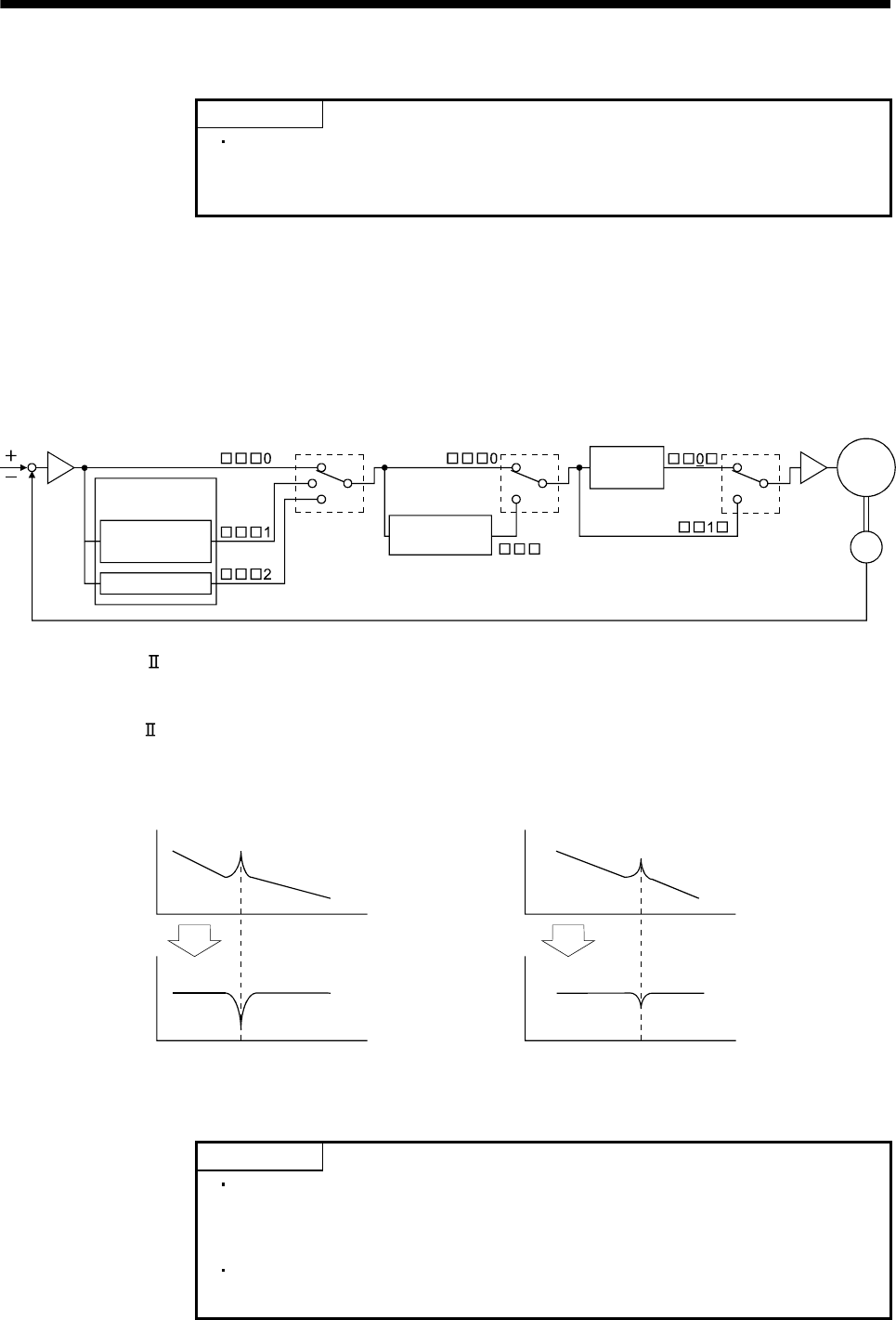
9 - 1
9. SPECIAL ADJUSTMENT FUNCTIONS
9. SPECIAL ADJUSTMENT FUNCTIONS
POINT
The functions given in this chapter need not be used generally. Use them if
you are not satisfied with the machine status after making adjustment in the
methods in chapter 9.
If a mechanical system has a natural resonance point, increasing the servo system response level may cause
the mechanical system to produce resonance (vibration or unusual noise) at that resonance frequency.
Using the machine resonance suppression filter and adaptive tuning can suppress the resonance of the
mechanical system.
9.1 Function block diagram
Parameter
No.PB23
Parameter
No. PB16
Parameter
No. PB01
Adaptive tuning
Manual setting
Speed
control
Machine resonance
suppression filter 2
Encoder
Current
command
Low-pass
filter
Servo
motor
Machine resonance
suppression filter
1
9.2 Adaptive filter
(1) Function
Adaptive filter
(adaptive tuning) is a function in which the servo amplifier detects machine vibration for a
predetermined period of time and sets the filter characteristics automatically to suppress mechanical
system vibration. Since the filter characteristics (frequency, depth) are set automatically, you need not be
conscious of the resonance frequency of a mechanical system.
Mechanical
system
response
level
Mechanical
system
response
level
Machine resonance point
Machine resonance point
Frequency Frequency
Notch
depth
Notch
depth
Notch frequency Notch frequency
Frequency Frequency
When machine resonance is large and frequency is low When machine resonance is small and frequency is high
POINT
The machine resonance frequency which adaptive tuning mode can respond
to is about 100 to 2.25kHz. Adaptive vibration suppression control has no
effect on the resonance frequency outside this range.
Adaptive vibration suppression control may provide no effect on a mechanical
system which has complex resonance characteristics.


















